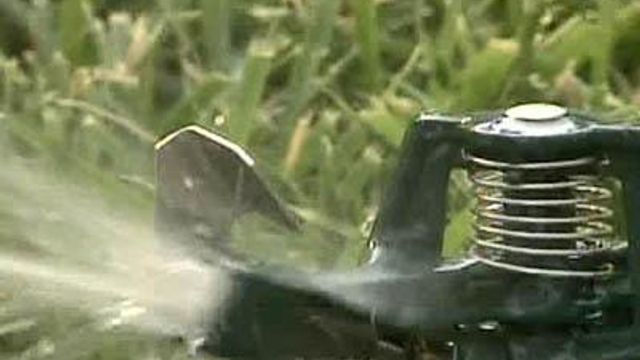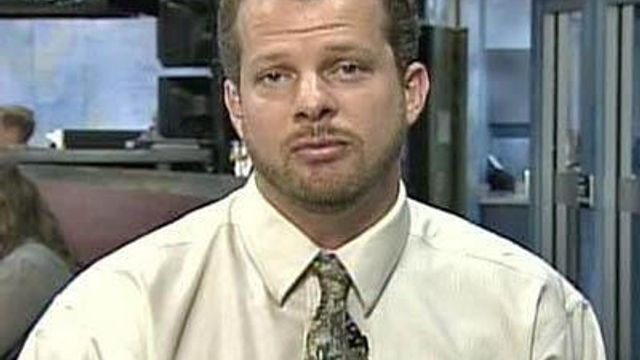Raleigh Tightening Valve on Outdoor Water Uses
The city of Raleigh will implement Stage 1 water restrictions next Tuesday. The change means irrigating lawns once a week.
Posted — UpdatedDespite the earlier limits on lawn-watering, Raleigh shattered its record for one-day water consumption by using 77 million gallons of water on Aug. 9. The city consumes about 60 million gallons on an average day.
The Stage 1 restrictions, which were recommended by a city task force last year to ensure an adequate year-round water supply, include the following:
- Sprinkler systems can be used only between midnight and 10 a.m. on Tuesday (odd-number addresses) or Wednesday (even-number addresses).
- Hoses with sprinklers can be used only from 6 a.m. to 10 a.m. and 6 p.m. to 10 p.m. on Tuesday (odd-number addresses) or Wednesday (even-number addresses).
- Hand-held watering can be done on the same times and days as sprinklers, as well as during those times on Saturday (odd-number addresses) or Sunday (even-number addresses).
- Cars can be washed only on weekends, although commercial car washes will be allowed to operate seven days a week.
- Power-washing homes, sidewalks or driveways can be done only on weekends, although commercial services will be allowed to operate as normal.
"We're going from three days (a week) down to one, and we're also restricting the hours on your assigned day (as to) when you can irrigate," said Dale Crisp, Raleigh public utilities director.
First-time violators face a $200 fine, while someone violating the restrictions a second time would be fined $1,000. A third violation would lead to the city shutting off water to the residence, Crisp said.
"In a large part, people who complain about this need to be a little bit introspective and wonder if they're part of the problem," City Councilman Philip Isley said.
A new home on Grand Journey Avenue in the Bedford at Falls River development in north Raleigh is the only residence that has been flagged four times by city inspectors for violations of existing lawn-watering rules. Two other nearby homes have been cited three times each.
Developer Scott Kirby said the Grand Journey Avenue home, which is unoccupied, and a mistake by a lawn company maintaining the house while it is on the market led to the violations. The contractor was using the lot number instead of the street address to determine when to water, Kirby said, adding that he hopes to negotiate the penalty with city officials.
The decision to move to Stage 1 restrictions comes one day after local, state and federal officials predicted that drought conditions across North Carolina would continue. The state needs 12 to 18 inches of rainfall to ease drought conditions, officials said, but the developing La Niña global weather pattern likely means more dry weather in the coming months.
The U.S. Army Corps of Engineers reported that the water level in Falls Lake is down 4 feet from normal and the remaining water supply pool is 62 percent.
"The lack of rainfall translates into extremely low stream flows, and the lack of streamflow translates into little or no recharge at the lake itself," Crisp said.
Based on current customer demand, the water supply in Falls Lake could be exhausted by early January if extreme weather conditions continue, Crisp said.
"(Falls Lake is) our most valuable resource," Isley said. "What we're trying to do is protect that as strongly and vigilantly as possible.
"My hope is we're going to have a storm come through," Isley said. "You never pray for a hurricane or tropical storm, but that's what we really need."
If the city doesn't see water usage go down in the coming weeks and the drought continues unabated, the city could put Stage 2 restricitons in place, Crisp said.
"Stage 2 takes a very conservative approach. It eliminates lawn irrigation altogether," he said, noting some homes certified by city inspectors would be exempt from those stiffer rules.
• Credits
Copyright 2024 by Capitol Broadcasting Company. All rights reserved. This material may not be published, broadcast, rewritten or redistributed.






